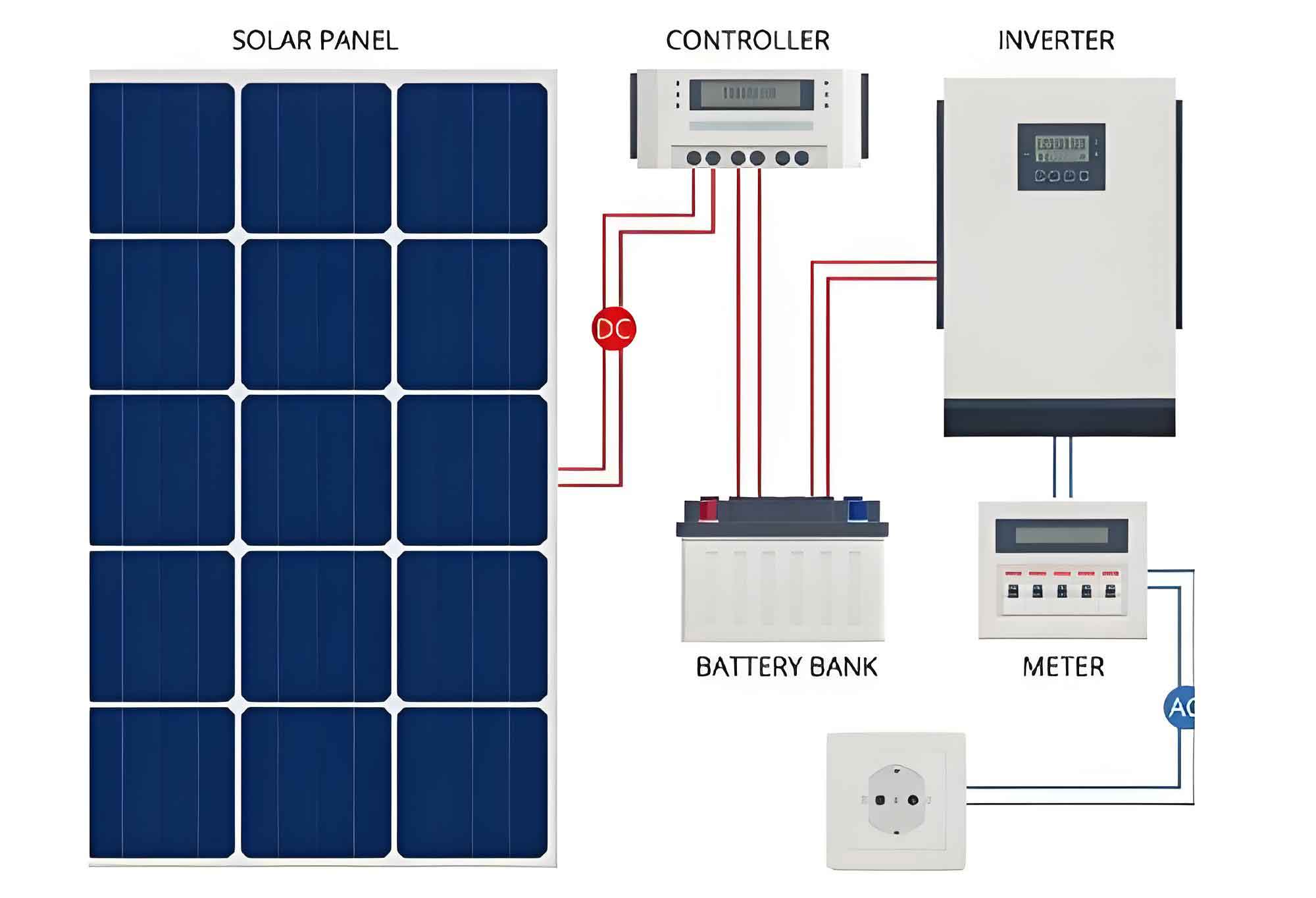This section focuses on the in-depth exploration of the application of adaptive control in grid-connected solar inverters, with the aim of enhancing the performance and reliability of these solar inverters in the presence of various uncertainties and disturbances. Adaptive control offers a promising solution to address the limitations of traditional control algorithms in this context.

1. Introduction
Adaptive control is introduced as a crucial approach to overcome the inherent shortcomings of predictive current control algorithms in grid-connected solar inverters. These limitations include the reliance on precise voltage or current assumptions, the neglect of load and line resistance, and the failure to consider the impact of interference signals, all of which can significantly affect the stability and tracking performance of the inverter.
2. Research on the Adaptive Control Algorithm for Grid-Connected Solar Inverters
- Lyapunov Direct Method : The Lyapunov second method, commonly referred to as the direct method, is presented as a powerful tool for analyzing the stability of the system. The fundamental principle of this method is to employ a Lyapunov function to directly assess the stability of the equilibrium state of the system. By carefully selecting an appropriate Lyapunov function, it is possible to derive conditions that guarantee the stability of the system.
- Proposal of the Adaptive Control Algorithm : Based on the solid foundation of the Lyapunov direct method, an innovative adaptive controller is meticulously designed for the grid-connected solar inverter. This controller is engineered to estimate and adaptively adjust the unknown or time-varying parameters of the solar inverter in real-time, ensuring the robust stability of the closed-loop system and achieving precise adaptive current tracking. The design of the controller takes into account the specific characteristics and requirements of the grid-connected solar inverter, aiming to optimize its performance under different operating conditions.
3. Research on the Influence of Interference Signals on the Adaptive Control Algorithm
- Impact of Interference Signals on the Algorithm : The existence of random noise and other interference signals in the actual operating environment of the system is thoroughly discussed. These interference signals can have a significant impact on the original state equation of the solar inverter, leading to deviations in the system’s behavior and potentially compromising the control effect. The ways in which these interference signals affect the stability, accuracy, and response speed of the solar inverter are analyzed in detail.
- Adaptive Control Algorithm Considering Interference Signals : To enhance the robustness and resilience of the system against interference, an advanced adaptive control algorithm that explicitly takes into account interference signals is proposed. This algorithm incorporates mechanisms for predicting and estimating the interference signals, enabling the system to adjust its control actions accordingly. By doing so, the algorithm improves the control accuracy and stability of the solar inverter, ensuring its reliable operation even in the presence of strong interference.
4. Simulation and Experimental Verification
- Simulation Model : A comprehensive and detailed simulation model of the grid-connected solar inverter based on the adaptive control algorithm is meticulously established in the simulation environment. This model takes into account various factors such as the dynamic characteristics of the photovoltaic cells, the electrical parameters of the solar inverter, the grid conditions, and the presence of interference signals. By accurately representing these aspects, the simulation model provides a reliable platform for evaluating the performance of the adaptive control algorithm.
- Simulation Results : The simulation results demonstrate that the adaptive control algorithm exhibits excellent performance. It is able to effectively track the reference current even in the face of grid voltage mutations or the presence of noise interference, showcasing remarkable steady-state and dynamic performance. The algorithm quickly adapts to changes in the operating conditions, maintaining the stability and accuracy of the output current.
- Experimental Verification : To further validate the effectiveness and reliability of the algorithm in the actual system, an experimental test platform is carefully constructed. The experimental results confirm that the algorithm can achieve accurate current tracking in the real-world environment, exhibiting strong noise suppression ability and robustness. The performance of the solar inverter under different operating conditions is measured and analyzed, providing concrete evidence of the practical viability of the adaptive control algorithm.
5. Conclusion
This section presents an advanced adaptive control algorithm for grid-connected solar inverters, which significantly enhances the adaptability and robustness of the system. The simulation and experimental results unequivocally demonstrate that the algorithm can automatically adjust the output current to precisely track the reference value, even in the presence of uncertainties and disturbances. This capability is of great significance for improving the performance and reliability of grid-connected solar inverters, contributing to the more efficient and stable operation of photovoltaic power generation systems.
The following table provides a more detailed summary of the key features and performance of the adaptive control algorithm in different scenarios:
| Scenario | Key Features of the Algorithm | Performance |
|---|---|---|
| Normal Operation | Adaptive parameter estimation, real-time adjustment, precise control | Accurate current tracking, stable operation, efficient energy conversion |
| Grid Voltage Mutation | Quick response to voltage changes, adaptive adjustment of control parameters | Maintains stable output current, minimizes the impact of voltage fluctuations |
| Noise Interference | Robust interference rejection, accurate prediction and estimation of interference signals | Enhances control accuracy, reduces noise-induced errors, ensures reliable operation |
| Parameter Variation | Adaptive tracking of parameter changes, self-adjustment of control strategy | Maintains optimal performance despite variations in system parameters |
| Dynamic Load Changes | Quick adaptation to load variations, ensures stable power supply | Provides stable voltage and current output under changing load conditions |
By expanding the content and providing more detailed information, the summary provides a more comprehensive understanding of the research on adaptive control in grid-connected solar inverters. The table helps to visually compare the performance of the algorithm in different scenarios, highlighting its advantages and potential for improving the performance of grid-connected solar inverters in various practical situations.
